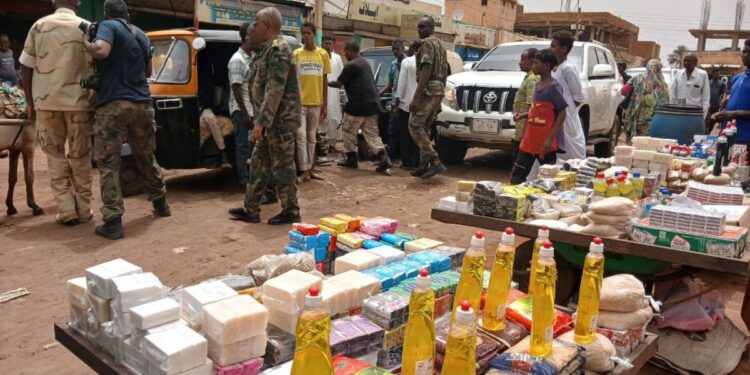20/8/2024–|Last update: 8/20/202404:15 PM (Makkah Time)
Sudan’s Central Bureau of Statistics said Tuesday that the inflation rate rose to 193.94% in July, from 136.67% in the first half of the year.
The first-half data was the first inflation data published for the country since the outbreak of war in April 2023, which has devastated the economy and displaced a fifth of the population.
According to the Central Bureau of Statistics, inflation in February, before the war, which is the last announced annual inflation rate, was 63.3%.
Inflation measures the change in the general level of prices in a given month of the year compared to the previous year.
The consumer goods and services price index for the food and beverages group in July of this year recorded an increase of 154.86% over its counterpart in the previous year, according to what the Sudanese News Agency (SUNA) reported from the Central Bureau of Statistics.
According to the press release issued by the agency today, Tuesday, the consumer price index in urban and rural areas rose in July of the current year 2024, and the percentage of increase in urban areas reached 181.70%, and in rural areas 202.25%. The statistics agency indicates that the data was collected in the field from 16 states, except for the states of Al-Jazeera and Central Darfur.
Economic cohesion
A few days ago, the Sudanese Minister of Finance and Economic Planning, Gibril Ibrahim, announced that his country’s economy is still holding together and that the planned collapse due to the ongoing war in the country has not occurred.
The minister revealed an improvement in revenue collection after the measures taken by the government to address weak revenues.
He explained that the measures included expanding the tax umbrella and continuing efforts to implement digital transformation, noting that 30% of the center’s revenues are transferred to the states through the Federal Governance Bureau.
During a press conference last Thursday at the Ministries Complex in Port Sudan, the Minister revealed that there is a production of corn and wheat sufficient for consumption needs, indicating that the Ministry of Finance is committed to purchasing farmers’ production to redistribute it to the states according to the approved mechanism.
He stressed that people’s livelihoods represent a challenge to the government, which seeks to provide free food to those who cannot afford it, in addition to its commitment to pay the costs of transporting relief for the benefit of citizens.
The Minister explained – in response to journalists’ questions – that the banking portfolio established by the Central Bank of Sudan aims to provide the currency required to meet the provision of basic commodities to the citizen.
He pointed out that efforts to stabilize the exchange rate are continuing as a primary concern, alongside efforts to reform the banking system affected by the war.
He added that the state was interested early in reconstruction after the end of the war, and a committee was formed to assess the losses and damages inflicted on the country and develop a vision for addressing them and seeking the assistance of external competent authorities to implement this.



